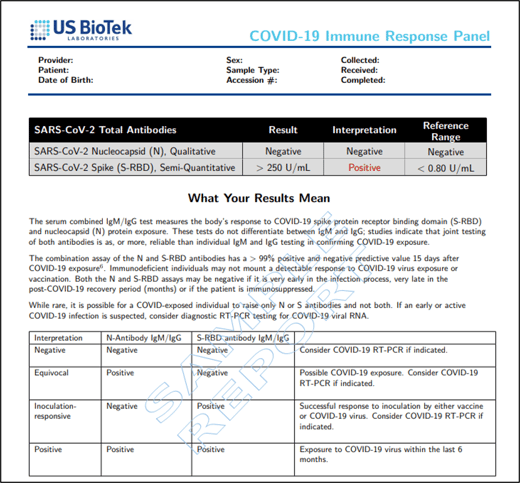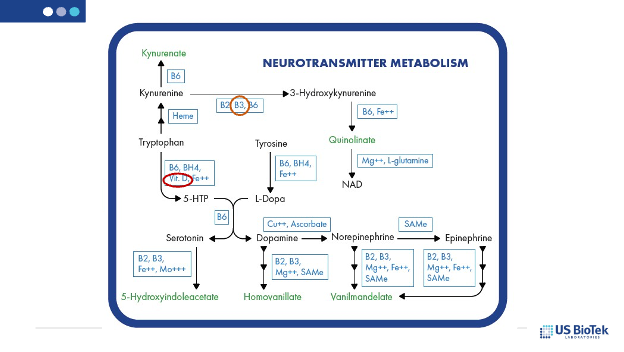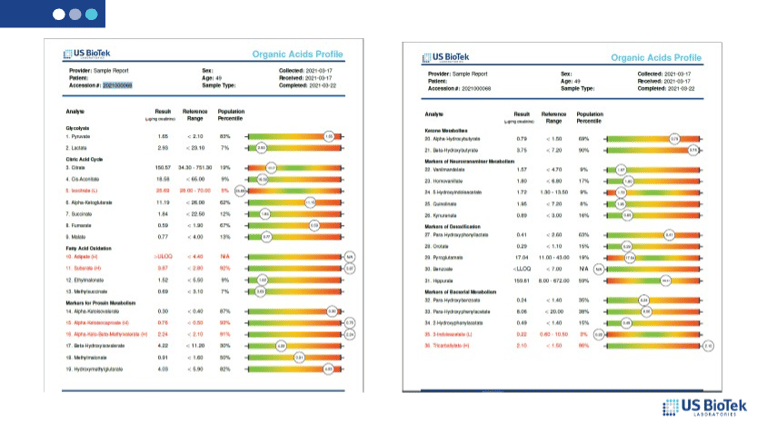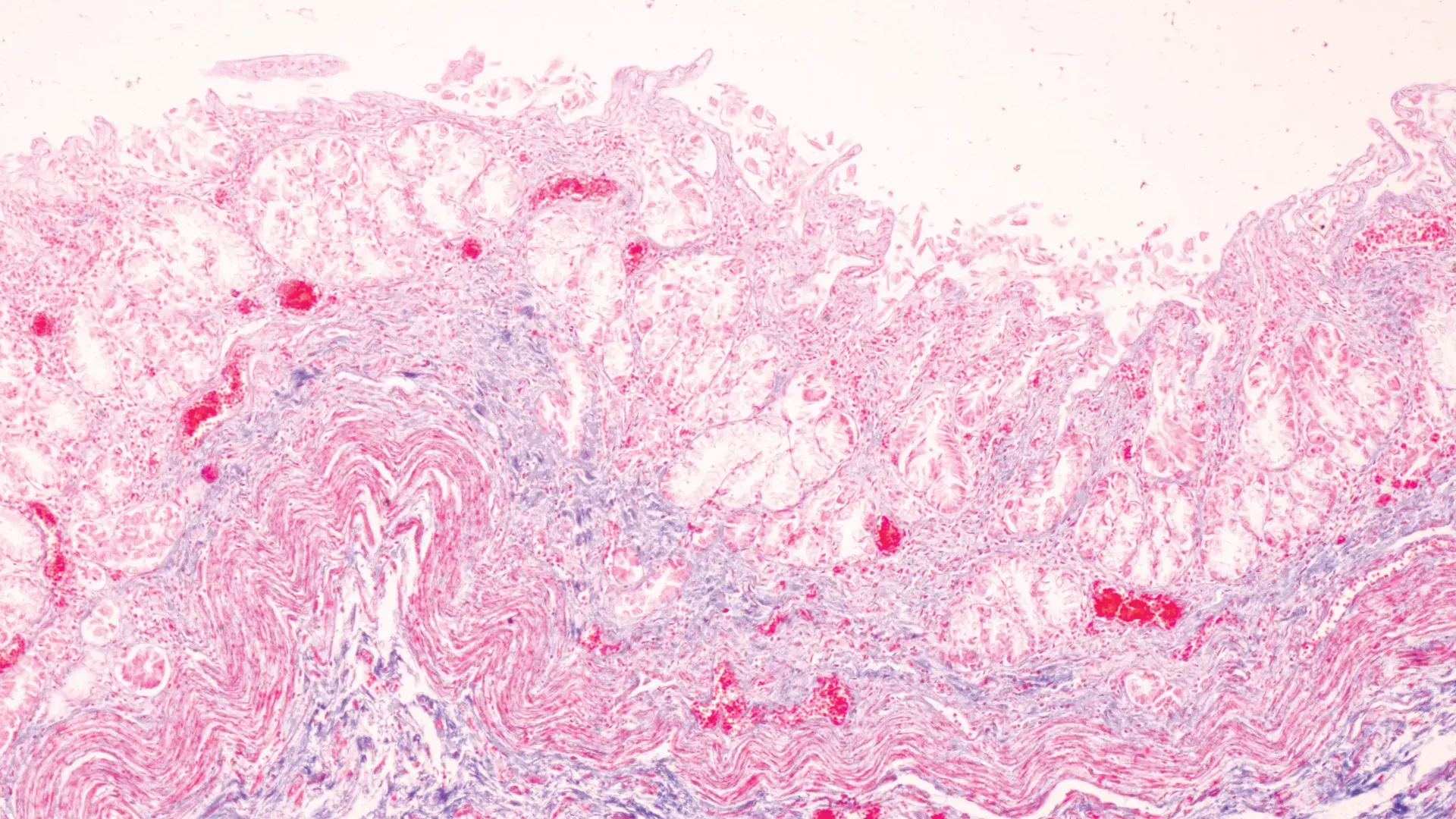4 Questions on NAD/NADH Testing Answered
Unlocking the Secrets of Cellular Energy
5 min read
![]() Dr. Andrea Gruszecki, ND
:
August 9, 2021 at 1:56 PM
Dr. Andrea Gruszecki, ND
:
August 9, 2021 at 1:56 PM

With an increasing percentage of the population at least one-dose vaccinated, the expected decline in COVID-19 infections has not happened, primarily due to the presence of the COVID-19 delta variant in North America. What has changed is who gets infected and what their risk of severe disease might be.
Despite occasional “breakthrough” cases in vaccinated individuals, the vast majority of new and currently hospitalized COVID-19 cases have occurred in the unvaccinated portion of the population. New statistical models indicate that, during this pandemic, the number of COVID-19 infections may be (and have been) up to 60% higher than reported.
Antibody assessment and COVID-19 risk
Because so few individuals are testing their spike antibody levels pre/post-vaccination there is currently no way to determine whether or not the “vaccine breakthrough” cases are actually “breaking through” the vaccine or if those developing and spreading COVID-19 post-vaccination are poor responders or non-responders to vaccination. The vaccines currently used in the US all target the spike protein receptor-binding domain (S-RBD) of the COVID-19 genome. The COVID-19 S-RBD protein binds to the angiotensin-converting enzyme (ACE) II receptor to allow the virus access to cells in the body. The vaccines create antibodies against S-RBD, effectively blocking viral access to the ACE II receptors. However, whether inoculated through prior COVID-19 infection or via the vaccine, not everyone responds to the exposure in the same way – a study of 164 people hospitalized with COVID-19 demonstrated 5 distinct response patterns in the 9 months following their infections:
The study’s final conclusion was that any prediction of COVID-19 immune response longevity could only be made at the individual level. This study’s findings, combined with recent evidence that vaccine-induced antibodies may decline within 6 months, means that testing for COVID-19 S-RBD spike antibody status with US BioTek’s COVID-19 Immune Response Panel pre-vaccination, and serial testing with the COVID-19 Vaccine Response Screen post-vaccination, is now an essential part of preventative health care.

The risk factors for symptomatic COVID-19 disease leading to hospitalization are well-documented and include age, comorbid chronic inflammatory disease, and male gender. The best COVID-19 protection strategy has been, and remains, good health and good antioxidant status (see links to US BioTek webinars on this topic at the end of this blog).
In a recent study, a cohort of infected COVID-19 adults (n=39) was compared to 20 non-infected controls. In this study circulating kynurenate (kynurenic acid) levels were positively associated with age, immune responses, and clinical outcomes in male patients only. Kynurenate is able to stimulate the aryl hydrocarbon receptor (AhR), as can a wide variety of pollutants and man-made chemicals, and overstimulation or overexpression of AhR can increase systemic inflammation levels. Human studies indicate that circulating kynurenate levels are often increased in people with type II diabetes and that higher levels of chronic inflammation increase the risk of a severe COVID-19 infection.
A quick look at the synthesis pathway provides a strong clue about which nutritional supports may correct high kynurenate levels:

Vitamin D, an essential nutrient for normal immune responses, is also essential to divert tryptophan towards serotonin synthesis and away from the potentially inflammatory kynurenate pathway. An inability to synthesize the tryptophan/vitamin B-3 derivative nicotinamide adenine dinucleotide (NAD+) is equally important. NAD+ is a vital coenzyme for normal physiological functions including energy generation (via mitochondrial function), DNA repair, immunoregulation, and gene expression. The tryptophan/kynurenate pathway is one of several interconnected pathways essential for adequate immune responses; the other pathways include glycolysis, the mitochondrial tricarboxylic acid (TCA) cycle, and fatty oxidation pathways (beta-oxidation). Kynurenate status and the status of all these other cycles are evaluated on US BioTek’s Organic Acids Profile.

The best time to evaluate these pathways with an Organic Acids Profile is before a disease like COVID-19 occurs because the better the body and immune systems are functioning, the more resilient a patient is likely to be to the severe effects of COVID-19, such as hospitalization or the development of a “cytokine storm”.
COVID-19 continues to be a major health concern. Decreasing the inflammatory effects of comorbid diseases, and improving mitochondrial functions and kynurenate levels can help improve patient resilience and may decrease the risk of severe COVID-19 infection. Kynurenate levels have been positively linked to COVID-19 severity in human males. US BioTek’s Organic Acids Profile can provide valuable information about kynurenate levels, mitochondrial function, and other biochemical pathways important for long-term health and wellness.
Individual variation in immune responses, combined with the short-lived protection offered by vaccination, indicate a continued need to monitor patient’s immune status using US BioTek’s COVID-19 Immune Response Panel pre-vaccination, and the COVID-19 Vaccine Response Screen post-vaccination is now an important part of preventative patient care.
COVID-19 is here to stay. Preventing COVID-19 infection, by improving patient resilience and monitoring patient immune response may be the best long-term strategy to promote health and safety for all our patients.
Join us on August 26nd, 2021 for a webinar as we dive into the citric acid cycle and mitochondrial function as it clinically applies to:
Braidy N, Liu Y. NAD+ therapy in age-related degenerative disorders: A benefit/risk analysis. Exp Gerontol. 2020 Apr;132:110831.
Cai Y, Kim DJ, Takahashi T, Broadhurst DI, Yan H, et al. Kynurenic acid may underlie sex-specific immune responses to COVID-19. Sci Signal. 2021 Jul 6;14(690):eabf8483.
Frellick M. (2021) US COVID Cases Likely Undercounted by Up to 60%, New Model Shows. Medscape. https://www.medscape.com/viewarticle/955594 Accessed 02 August 2021
James PT, Ali Z, Armitage AE, Bonell A, Cerami C, et al. The Role of Nutrition in COVID-19 Susceptibility and Severity of Disease: A Systematic Review. J Nutr. 2021 Jul 1;151(7):1854-1878.
Ko JY, Danielson ML, Town M, Derado G, Greenlund KJ, et al. Risk Factors for Coronavirus Disease 2019 (COVID-19)-Associated Hospitalization: COVID-19-Associated Hospitalization Surveillance Network and Behavioral Risk Factor Surveillance System. Clin Infect Dis. 2021 Jun 1;72(11):e695-e703.
McNamara D. (2021) Pfizer Vaccine Protection Wanes After 6 Months: Study. Medscape. https://www.medscape.com/viewarticle/955601?src=mkm_covid_update_210728_MSCPEDIT&uac=373290PR&impID=3533994&faf=1 Accessed 03 August 2021.
Moreno-Altamirano MMB, Kolstoe SE, Sánchez-García FJ. Virus Control of Cell Metabolism for Replication and Evasion of Host Immune Responses. Front Cell Infect Microbiol. 2019;9:95.
Nunn, A.V.W., Guy, G.W., Brysch, W. et al. SARS-CoV-2 and mitochondrial health: implications of lifestyle and ageing. Immun Ageing. 2020;17(33). https://doi.org/10.1186/s12979-020-00204-x .
Oxenkrug GF. Increased Plasma Levels of Xanthurenic and Kynurenic Acids in Type 2 Diabetes. Mol Neurobiol. 2015 Oct;52(2):805-10. doi: 10.1007/s12035-015-9232-0.
Salamanna F, Maglio M, Landini MP, Fini M. Body Localization of ACE-2: On the Trail of the Keyhole of SARS-CoV-2. Front Med (Lausanne). 2020 Dec 3;7:594495.
Stanton A. (2021) U.S. Hits 70 Percent Vaccinated With One Dose, Almost a Month After Biden's Target. Newsweek. https://www.newsweek.com/us-hits-70-percent-vaccinated-one-dose-almost-month-after-bidens-target-1615364 Accessed 02 August 2021.

Unlocking the Secrets of Cellular Energy

Short chain fatty acids (SCFAs) are organic acids produced by bacterial fermentation of dietary fibre and resistant starch. Enterocytes and...

Zonulin has emerged as a popular marker to assess the integrity of the intestinal mucosal barrier. Discovered by Dr Alessio Fasano, Zonulin...